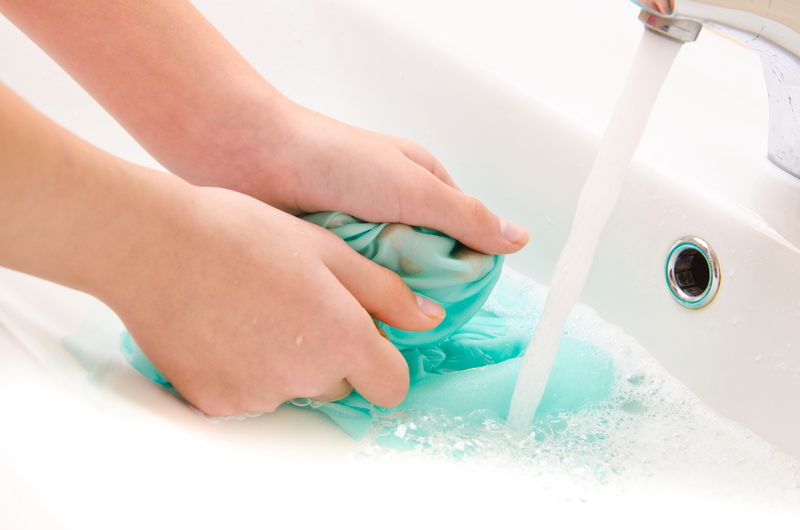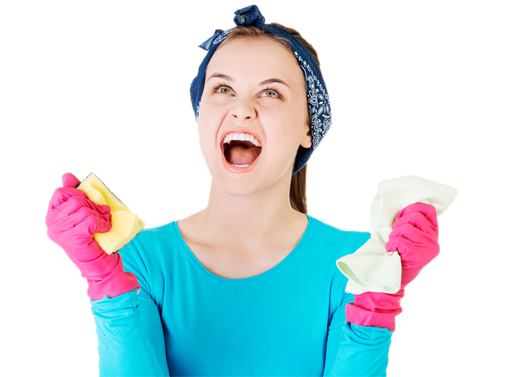Master the Art of Jewellery Cleaning Today
Posted on 22/09/2025
Master the Art of Jewellery Cleaning Today: The Complete Guide
Shining, sparkling, and eye-catching--your jewellery deserves to look its absolute best. But over time, even the finest pieces can lose their glimmer. If you're ready to revive your precious gems and metals, it's time to master the art of jewellery cleaning. In this comprehensive article, we'll cover expert tips, essential cleaning methods, maintenance hacks, and everything you need to know to keep your collection dazzling--starting today!
- Why Jewellery Cleaning Matters
- Know Your Jewellery: Understanding Materials
- Basic At-Home Jewellery Cleaning Techniques
- Special Care: Cleaning Precious Gemstones
- What Not to Do: Common Jewellery Cleaning Mistakes
- Deep Cleaning and Professional Care
- Jewellery Maintenance Tips: Keeping the Shine Long-Term
- FAQs About Cleaning Jewellery at Home
Why Jewellery Cleaning Matters
Over time, jewellery accumulates grime, oils, dust, and even bacteria from daily wear. This can not only dull the appearance of your rings, necklaces, and earrings but can also cause potential damage. Regular cleaning preserves both the beauty and integrity of your treasured pieces.
Top 5 Benefits of Regular Jewellery Cleaning
- Enhances appearance by restoring original brilliance
- Prevents tarnish and corrosion in metals like silver and gold
- Removes potentially harmful bacteria for hygienic wear
- Extends longevity by preventing abrasive dirt buildup
- Protects gemstones and settings from unnoticed damage
Know Your Jewellery: Understanding the Materials
Before beginning any cleaning routine, it's critical to identify the materials your jewellery is made from. Each metal, gemstone, or setting demands its own care methods--and using the wrong approach might cause more harm than good.
Common Jewellery Materials
- Gold: Durable, but soft and prone to scratching if abrasive cleaners are used.
- Silver: Tarnishes over time; requires specific cleaners to restore shine.
- Platinum: Highly durable, can withstand gentle scrubbing.
- Diamonds: Tough stones, but settings can loosen if not cleaned delicately.
- Colored gemstones (emerald, ruby, sapphire, etc.): Sensitivities vary widely--always research your specific stone.
- Pearls and opals: Very delicate; avoid soaking and choose mild cleaning agents.
Tip: If uncertain, consult a jeweller before applying any new cleaning method to avoid unintentional damage.
Basic At-Home Jewellery Cleaning Techniques
For most of your treasured pieces, all you need to restore their shine is a few jewellery cleaning basics. Here's how to care for everyday gold, silver, and gemstone items right at home.
1. Soap and Water Method
- Fill a small bowl with lukewarm water. Never use hot, as it can cause thermal shock to some stones.
- Add a few drops of mild dish soap.
- Soak jewellery for about 15-20 minutes.
- Use a soft-bristled toothbrush to gently scrub crevices.
- Rinse under cool running water and dry with a lint-free cloth.
2. Silver Polishing Cloth
- Specially designed for silver, these cloths help to remove tarnish without scratching.
- Gently rub the jewellery following the grain of the metal.
- Repeat as needed to restore shine and brilliance.
3. Baking Soda Paste for Heavily Tarnished Silver
- Mix three parts baking soda to one part water, forming a thick paste.
- Apply using a clean, soft cloth, gently rub, then rinse and dry.
- Warning: Avoid this on pieces with soft stones or intricate designs.
What About Ultrasonic Cleaners?
For sturdy pieces like diamond rings or basic gold jewellery, ultrasonic cleaners can provide intensive cleaning. However, never use these for fragile gemstones, pearls, or antique pieces--the vibrations can cause cracks or dislodge stones.
Special Care: Cleaning Precious Gemstones
Not all gemstones are created equal! Learning how to clean gemstones the right way helps protect their unique beauty. Here's a guide for some of the most popular stones.
-
Diamonds:
- Soak in warm soapy water and brush gently.
- Avoid abrasive powders that can dull the facet edges.
-
Emeralds and Opals:
- Porous and sensitive to heat, chemicals, and rough handling.
- Wipe with a soft, damp cloth--avoid soaking.
-
Pearls:
- Extremely soft and organic. Clean with a mild, damp cloth.
- Never submerge or use harsh soaps/chemicals.
-
Turquoise and Lapis Lazuli:
- Prone to discoloration with exposure to chemicals.
- Wipe only with a slightly damp cloth.
When in doubt, contact a professional jeweller for gemstone cleaning.
What Not to Do: Common Jewellery Cleaning Mistakes
A crucial part of mastering the art of jewellery cleaning is knowing what hazards to avoid. Many cleaning hacks found online can cause more harm than good!
- Never use bleach or harsh household chemicals. These can corrode metals and damage stones.
- Avoid toothpaste and baking soda on soft stones or plated jewellery--they are abrasive.
- Don't soak jewellery with glued-in stones, pearls, or soft gems.
- Do not use ultrasonic cleaners for antique, porous, or delicate pieces.
- Always inspect for loose stones or damaged clasps before cleaning.
Deep Cleaning and When to Visit a Professional
Some jewellery calls for more intensive care. If you have pieces that are heavily tarnished, have intricate settings, or carry sentimental/monetary value, consider professional jewellery cleaning services. Certified jewellers use specialized equipment and cleaning agents designed to remove deep-set grime, polish metals, and preserve gemstone settings.
- Annual check-ups are recommended for engagement rings, antique heirlooms, and daily-wear jewellery.
- Professionals will also check and secure settings, prongs, and clasps.
Deep cleaning at home can also be achieved by soaking sturdy gold or platinum in a solution of water and a few drops of gentle ammonia--but never on pieces with pearls or soft stones, and always rinse thoroughly.
Maintaining the Sparkle: Proactive Jewellery Care
Learning how to keep jewellery clean is just as important as knowing how to wash it. Daily habits can make a huge difference in minimizing build-up and reducing the cleaning required.
Sparkling Maintenance Hacks
- Remove jewellery before exercising, swimming, showering, or applying cosmetics.
- Store each piece separately to prevent scratches--use a soft pouch or a lined jewellery box.
- Wipe down your jewellery after each wear to remove body oils and residues.
- Keep away from direct sunlight, excessive heat, and humidity.
- Get your most precious pieces professionally inspected every year.
Frequently Asked Questions About At-Home Jewellery Cleaning
How often should I clean my jewellery?
Jewellery worn every day, like wedding bands or engagement rings, should be cleaned once every two weeks. Occasional pieces can be cleaned every couple of months.
Is ultrasonic cleaning safe for all jewellery?
No. Ultrasonic cleaners should not be used with pearls, emeralds, opals, or vintage pieces. Always check suitability before use!
Can I use vinegar or baking soda to clean my rings?
Vinegar is too acidic for many stones and metals, causing corrosion over time. Baking soda can be abrasive. Stick to mild soap and water for most jewellery.
What should I do if my jewellery turns black or green?
This can be due to tarnish (especially in silver) or reaction with skin acids. Try a dedicated silver polishing cloth or professional cleaning service.
What's the best way to clean antique jewellery?
Always consult a professional! Antique pieces can have fragile settings, and improper cleaning can destroy their value.
Conclusion: Unlock the Secrets to Radiant Jewellery
Mastering the art of jewellery cleaning is a skill that will keep your precious accessories brilliant and cherished for years to come. Whether you use basic at-home techniques or seek out professional care, a little knowledge and regular maintenance can restore even the dullest pieces to their former glory.
Start your journey today--shine on, and let your jewellery sparkle as brightly as your personality!


Latest Posts
Tenants' Must-Do: Complete End of Tenancy House Cleaning Guide
Your Guide to Mould-Free Window Sills: Cleaning Techniques
Conquer Burnt-on Residue: Stovetop Cleaning Tips and Tricks





